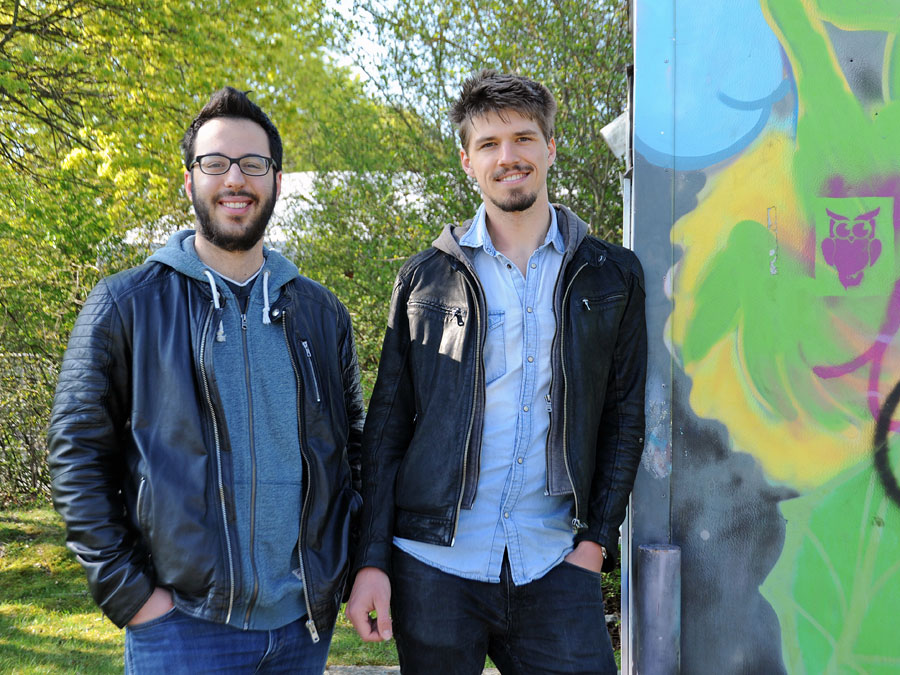Students help refugees:
“It feels good to be able to help”

Marwin, you initiated the group of helpers at your student dorm. How come you wanted to get involved here?
Marwin: Some day in November, it became clear that there were plans for a refugee shelter near our dorm – and I immediately knew that I wanted to show commitment for the refugees. Using our dorm’s Facebook group, I started to look for allies. I found 20 other students who also wanted to help the people there. A few weeks ago, the first refugees moved in – and we were involved almost from the very beginning.
Can anyone just get involved at a refugee shelter?
Marwin: Yes! The responsible authorities are very happy about volunteers, as they are limited to dealing with the paperwork. For other tasks, it is important that there are committed citizens who assist the refugees in their everyday lives. For me, it all started off a bit bumpy: When I tried to contact the person in charge by email, I had to wait for an answer for ages, because the authorities were overchallenged. Then, I got to know a woman in a responsible position at Diakonie – and, all of a sudden, the “cooperation” worked out without complications.
What exactly do you do to help the refugees?
Philipp: There are five groups, and each of them is in charge of a certain topic: sports, German courses, music, excursions and cooking. My group, for example, offers 15 different German courses a week. In each of the courses, two of us help the refugees to learn the basics of the German language. We are always in close contact with our contact person at Diakonie. Ultimately, however, we are really free in what we do and how we manage the courses. We have to improvise a lot, because there are no fixed classes and our groups of “pupils” are always changing.
Marwin: My Sports-group meets up twice a week to play football with the refugees. Currently, we play on a public court behind the shelter, where other groups play as well. But we will soon be able to use a real soccer field at a nearby school, where we can do proper training.
Why are you so eager to help the refugees?
Marwin: I spent a year abroad in Africa, and I learned that there can be many cultural difficulties when people from different parts of the worlds meet each other. My fear is that the integration of the refugees in Germany is bound to fail if they stay among themselves. That’s why I decided to show commitment – and simply because I just want to. I have the feeling that I can really make a difference.
Philipp: I’m half Greek. In Greece, my second home, I experienced how bad the situation at the port of Piraeus in Athens is, for example. As I am studying in Germany, I naturally had to try and help the refugees here. Time-wise, it’s no big thing to offer a German course once a week, and it feels good to be able to help. We’ve only been doing this for a few weeks, but it’s a lot of fun already for everybody.
(Interview: Sabrina Czechofsky)
Marwin Gihr, 21, is in his 4th Bachelor’s semester of TUM BWL and his 2nd Bachelor’s semester of Engineering. After his “Abitur”, he did volunteer work in South Africa for one year (FSJ) and could thus experience what it is like when different cultures meet. Philipp Barabas, 21, is in his 6th semester of Electrical Engineering and Information Technology at TUM. He grew up in Greece and visited a German School in Athens. Philipp has now been living in Munich for three years. After completing his Bachelor degree, he wants to travel and to do internships.